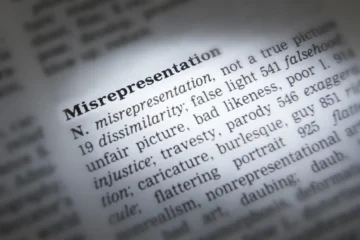Cohabitation Rights in South Africa Explained
Cohabitation Rights in South Africa Explained
By The National Debt Review Center
When you’re living with your romantic partner in South Africa then there are a number of different legal rights that you might be entitled to. There’s the right to inherit property in the event of a break-up, the right to share earnings and tax benefits during their lifespan, and more. But what are these rights? To find out how to exercise them, keep reading below.

Cohabitation In South Africa
In South Africa, cohabitation is not recognized as a legal union. This means that couples who live together do not have the same rights as married couples. For example, they are not entitled to the same property rights or inheritance rights. Additionally, children born to unmarried parents do not have the same legal status as children born to married parents.
There are some benefits to cohabiting in South Africa, though. Couples who live together can register their relationship with the Department of Home Affairs. This gives them some legal protections, such as the right to make medical decisions for each other and the right to inherit each other’s property. Additionally, children born to unmarried parents can be given the same surname and have their birth registered with both parents’ names on it.
Cohabitation is an increasingly common situation in South Africa, as more couples choose to live together before getting married or enter into civil partnerships. It’s important to understand your rights as a cohabiting couple so that you can plan for your future accordingly.
Laws Regarding Cohabitation
In South Africa, cohabitation is not recognized as a form of marriage by the law. This means that there are no laws in place specifically for cohabiting couples. However, this does not mean that cohabiting couples have no rights. Couples who are cohabiting have the same general rights as any other couple in a relationship.
There are a few key things to keep in mind when it comes to the rights of cohabiting couples:
- Cohabitation agreements are not legally binding in South Africa. This means that if you and your partner decide to move in together, you cannot sign an agreement that would make your living arrangement legal. However, such an agreement can be used as evidence in court if there is a dispute between you and your partner later on.
- Property owned by one partner before the relationship began remains that partner’s property after the relationship ends, unless the couple agrees otherwise in writing. This applies to both physical property (like furniture or cars) and financial property (like savings accounts or investments).
- If one partner dies without leaving a will, their property will be divided according to the intestate succession laws of South Africa. This means that their property will be divided equally between their surviving spouse and any children they may have. If there is no surviving spouse or children, then their property will be divided among their parents or siblings. If there are no surviving relatives, then the deceased partner ’s property will go to the state.
What is a Registered Partnership?
A registered partnership, also called a civil partnership, is a legally recognized relationship between two people who are not married. Registered partnerships provide many of the same rights and responsibilities as marriage, including the right to inherit property, make medical decisions for each other, and receive survivor benefits if one partner dies.
Cohabitation, on the other hand, is when two people live together without being married or in a registered partnership. Cohabiting couples do not have the same legal rights and protections as married or partnered couples. For example, if one cohabiting partner dies, the other partner will not automatically inherit their property.
The laws surrounding cohabitation rights vary from country to country. In South Africa, cohabiting couples have very few legal rights compared to married or partnered couples. This is because South African law does not recognize cohabitation as a legal status.
Cohabitation and Debt
“Cohabitation and Debt”
Cohabitation is when two people live together without being married. In South Africa, cohabitation is not recognised as a legal relationship. This means that if you live with your partner and are not married, you do not have the same legal rights as married couples.
This can cause problems if you then break up, as there is no legal process to divide your property or assets. It also means that your partner will not automatically inherit from you if you die without leaving a will.
If you are in a cohabiting relationship and take out a loan together, or buy property jointly, you may find that you are both equally liable for the debt even if only one of you signed the contract. This can cause problems if your relationship breaks down and one person wants to sell the property but the other doesn’t, or if one person stops paying the loan and the other person’s credit score suffers.
It’s important to be aware of these issues before entering into a cohabiting relationship. You should discuss your financial situation and agree on how you will handle money matters before moving in together. You may also want to consider drawing up a cohabitation agreement, which is a legally binding document that sets out each person’s rights and responsibilities during the relationship.
Promising to one another as Living Together and Cohabitating
If you live with your partner and are not married, you may be under the impression that you have no legal rights. This is not the case in South Africa. The Recognition of Customary Marriages Act, Act 120 of 1998 (as amended) recognizes the validity of customary marriages entered into before or after the commencement of the Act. A customary marriage entered into before the commencement of the Act is only recognized if both parties to the marriage were African and neither party had a spouse at the time of concluding the marriage.
Customary marriages concluded after the commencement of this Act are subject to certain conditions precedent, which include:
- both parties must be 18 years or older.
- the marriage must be negotiated and celebrated in accordance with customary law.
- neither party must be married to someone else at the time of concluding the marriage.
- the consent of both parents or guardians must be obtained if either party is under 21 years old; and
- both parties must freely consent to marry each other.
If these conditions are met, then the marriage will be recognized as valid, and each party will have all the associated rights and responsibilities that come with being married. Cohabitation Rights in South Africa Explained
Couples that live together without being married may enter into a cohabitation agreement to define their rights and responsibilities towards one another. A cohabitation agreement is a contract between two people who live together, but are not married to each other. The agreement sets out how the couple will share their finances, property and other assets, as well as how they will care for any children they may have.
The agreement can be helpful in clarifying each person’s rights and responsibilities and can avoid potential conflict in the future. However, it is important to note that a cohabitation agreement is not legally binding in South Africa. This means that if the couple does break up, they will not be able to enforce the terms of the agreement in court.
Declaring To be Together as Husband and Wife?
Cohabitation is when two people live together without being married. In South Africa, cohabitation is not automatically recognized as a marriage, but there are certain rights that come with cohabitation.
If you want to be recognized as married in South Africa, you need to follow the process of getting married according to the Marriage Act. This involves getting a marriage license and having a civil or religious marriage ceremony.
However, if you live together without being married, you may still acquire some rights through common law. These rights are not as extensive as those given through marriage, but they can provide some protection.
For example, if you have been living with your partner for more than two years, you may be able to claim spousal maintenance from them if you break up. This is money that is paid to support one partner after a relationship ends.
You may also be able to claim a share of your partner’s property if you can prove that you contributed to its purchase or improvement. This is known as “unjust enrichment” and can be difficult to prove.
If you have children together, both parents have a responsibility to support their children financially. However, if you are not married to your partner, it can be difficult to enforce this right. You may need to get a court order to force your partner to pay child support.
Overall, declaring yourselves husband and wife gives extensive rights that cannot be equaled through common law. If you want to make sure that you and your partner have the same rights as a married couple, you should follow the process of getting married according to the Marriage Act.
Newlywed And New Partner Rights
When a couple gets married in South Africa, they have certain rights and responsibilities towards each other. The same is true for couples who live together without getting married – these couples are known as cohabiting couples.
Cohabiting couples do not have the same legal status as married couples, but they do have some rights in terms of property ownership and financial support.
The main difference between married and cohabiting couples is that married couples can get divorced, while cohabiting couples cannot. This means that if things go wrong in a marriage, the couple can legally end their relationship. However, if things go wrong in a cohabiting relationship, the couple does not have this option.
This can create problems if one partner wants to end the relationship but the other does not. In such cases, it is advisable to seek legal advice to understand what your rights are.
Conclusion
In light of the recent constitutional court ruling, cohabitation rights in South Africa have been clarified and secured. This is good news for couples who choose to live together without getting married, as they now have greater protection under the law. While there are still some areas that need to be ironed out, this ruling is a positive step forward for cohabiting couples in South Africa.






0 Comments